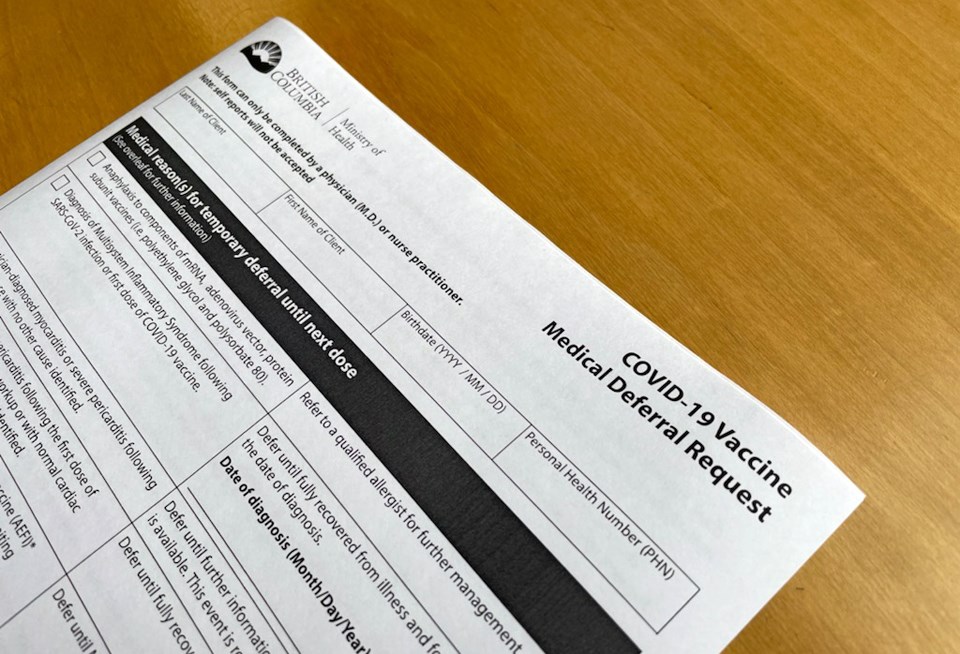A Burnaby man whose COVID-19 vaccine exemption papers proved mostly useless for getting into events and businesses during B.C.’s vaccine mandates has failed to convince a B.C. Supreme Court judge the province’s public health orders were unconstitutional.
William Robertson Prendiville, a Burnaby hiking guide who also works in building operations, and two other petitioners applied to the court to have a series of public health orders dating from Sept. 13, 2021 declared unconstitutional and contrary to Canada’s Charter of Rights and Freedoms, according to a ruling Monday.
B.C. Supreme Court Chief Justice Christopher Hinkson, who issued the ruling, noted the trio hadn't challenged the orders in general but rather the province’s “alleged unconstitutional failure to provide an effective, comprehensive, and accessible regime for medical exemptions.”
Prendiville got his first COVID-19 vaccination, a Pfizer shot, on May 18, 2021 but began experiencing chest pain in the days that followed. Ten days later, he was unable to breathe without assistance, according to the ruling.
“He was taken to hospital and was advised that he was fighting for his life,” the ruling states.
A cardiologist determined Prendiville had experienced an adverse reaction to the COVID-19 vaccine and developed pericarditis. He was told to avoid further COVID-19 vaccines.
His doctor submitted a COVID-19 vaccine medical deferral form request to the office of the provincial health officer for Prendiville, and they issued him a medical exemption certificate.
But Prendiville told the court his attempts to use the official paper largely failed.
“He deposed that he has been turned away from the majority of businesses he attempted to access utilizing the exemption certificate, and that store owners and facility managers to whom he has presented the exemption certificate have repeatedly accused him of forging the document, stated they had never heard of anyone receiving such an exemption, told him to leave the premises, and refused him entry based on his vaccination status,” states the ruling. “Mr. Prendiville deposed that even businesses that granted him access with his exemption certificate did so inconsistently. He said that staff members would occasionally ask him numerous questions about his personal medical conditions before granting him access or would simply decide that they could not let him in because they were unfamiliar with the document.”
The province and provincial health officer argued the petition should be tossed, especially given that the health orders in question are no longer in effect, making the petition moot.
But Hinkson noted the province and PHO “could offer no assurance” the orders would not be reintroduced if COVID cases surged.
In the end, however, Hinkson ruled to dismiss the petition.
He said any harm Prendiville suffered “was not a result of anything done or not done by the respondents.”
“While he has encountered less than full acceptance of his temporary deferral by businesses he has attempted to patronize, I am unable to find that this is the fault of the respondents,” Hinkson said. “Indeed, the Province cannot be held responsible for the implementation of the Orders by private businesses, nor can private businesses violate an individual’s Charter rights.”
As for Prendiville’s co-petitioners, Hinkson ruled they had not followed through on all the “available statutory remedies” available to them, so their petition was premature.
Follow Cornelia Naylor on Twitter @CorNaylor
Email [email protected]



